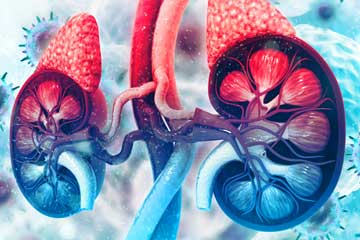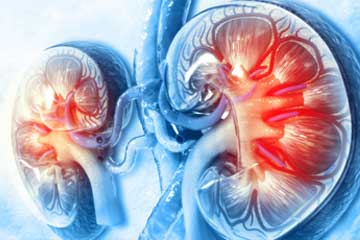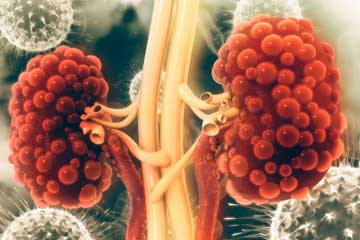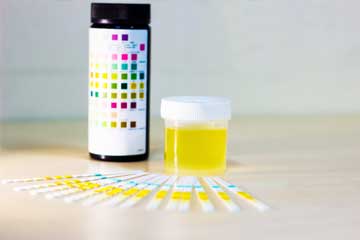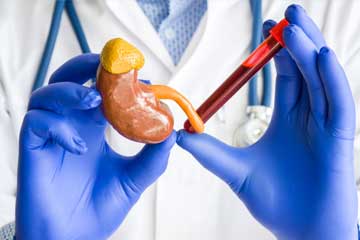What is Creatinine?
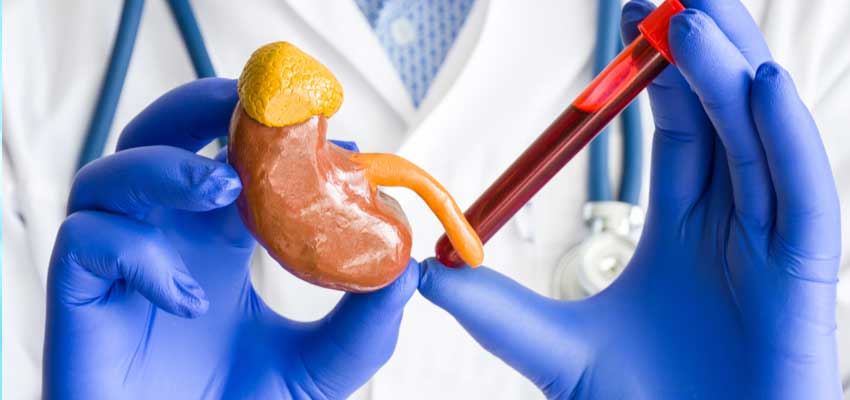
Creatinine is a chemical waste found in the blood and is created by the daily physical work our muscles do. The more muscle mass you have, the more creatinine your body will produce. The levels of creatinine in the blood depict how frequently your kidney is eliminating this chemical waste. Since it is found as a waste in the blood, it is your kidneys that are responsible for sifting creatinine.
Most men with a healthy kidney function have creatinine in the range of 0.6 to 1.2 mg/dL, while if you are a healthy woman, the normal creatinine range for you is 0.5 to 1.1 mg/dL. The reason for deviation in the ranges is that the women have low muscle mass than men do.
You know this fact very well that to let the body work to its core capabilities; the blood should be toxin-free. Blood that is high in creatinine and other waste puts the body at the risk of developing lethal conditions, such as uremia. Ayurvedic treatment for creatinine is the best treatment of choice for people who wants to get rid of toxic substances in their body using Ayurveda.
What are the causes of high creatinine?
Routine blood tests can help measure creatinine levels, but to make sure that a high level of creatinine is not temporary, the doctor will do three tests to diagnose high creatinine. You may have too much creatinine in your blood for an interim period if you are on some medications that damage the kidney function, supplements, and consuming foods that can also spike up the risk of it.
There is also an increased risk of high creatinine if you consume too much protein for the time being or doing some serious workout.
Only when multiple tests show a person has abnormal levels of creatinine, it is surveyed as a sign of low kidney function.
Sometimes, a severe infection may also influence the kidney function, or the person may have poor blood circulation or reduced blood flow to the kidneys or even high blood pressure.
The other several reasons attached to too much creatinine are:
- The condition of chronic kidney disease in which the kidney function slowly decreases
- The glomeruli are the filters of the kidneys that excrete creatinine, off chance they are damaged; it also results in a high creatinine amount in the blood
- High blood sugar is a condition which damages the nephrons and the glomerulus
- Several autoimmune system diseases such as lupus attack the body's immune system and so do the kidneys
- Goodpasture syndrome
- Gout is a type of arthritis
- Muscular dystrophy
- Severe blood loss caused by shock
- Dehydration
It is essential that if your kidney function is low and levels of creatinine are high, work with your healthcare provider and learn about the ways to get through it. It is a good way to work on the natural ways of reducing creatinine levels.
Creatinine and chronic kidney disease
When you consume protein, the liver produces a byproduct called creatine. This substance is then passed to the muscles through the blood for the conversion into energy. The muscles convert the creatine into the amount of energy they need, and the rest is transformed in the form of waste called creatinine.
Since creatinine is a waste for the body, it is the kidneys that are held accountable for excreting them out along with the urine. When there is any kidney damage or disease, they find it hard to work on the elimination process, and so the waste level rises up.
Many doctors suggest dialysis when the creatinine level is too high. However, this is one of the factors to consider whether you need a kidney treatment or not.
Symptoms of low kidney function
Some individuals with a low kidney function may not show up any signs until the diseases reach an advanced stage though the creatinine level also reaches high at that time.
Some signs of too much creatinine are:
- Loss of appetite
- Vomiting
- Dry or itchy skin
- Weakness in the body
- Signs you have flu
- Swelling in the legs and foot
- Shortness of breath
- Difficulty walking
How often should you go for a creatinine test?
Creatinine tests are done through the blood and the urine tests because it is found in both. Such tests can also help know your other kidney functional parameters.
- Serum creatinine
Serum creatinine is done to know how much creatinine is present in the bloodstream. Serum creatinine, when measured, allows your doctor to know the creatinine level from which the glomerular filtration rate is measured based on your age and gender.
If given serum creatinine, the doctor can know your stage of chronic kidney disease.
- Creatinine clearance
Creatinine clearance is the measurement of kidney functionality. It works on how much creatinine is cleared from the body in a period. The urine is collected over 24 hours; the creatinine clearance is evaluated after measuring the serum creatinine and the glomerular filtration rate
Understanding abnormal creatinine test results
A low glomerular filtration rate or creatinine clearance levels show that your kidney is diseased. It may happen that the damage to the kidneys can either be acute or chronic. So, make sure to go for repeated tests over time to stroke up the presence of kidney disease.
In many cases, such as aging, kidney function naturally gets declined, and people lose 30 to 40% of their kidney function without having any major health issues.
Doctor's figure out how severe is your kidney disease based on the stage of chronic kidney disease. The stages have been divided based on the GFR; these are:
Stage 1: GFR greater than 90 means your kidney function is normal
Stage 2: GFR in between 60 and 89 indicates mild damage to the kidneys
Stage 3: The moderate damage to the kidneys occurs in the third stage with a GFR between 30 and 59
Stage 4: The fourth stage is the severe stage arising because of GFR ranging between 15 and 29
Stage 5: This is the stage when the kidneys require failure treatment
To know your kidney function, call your doctor now!

